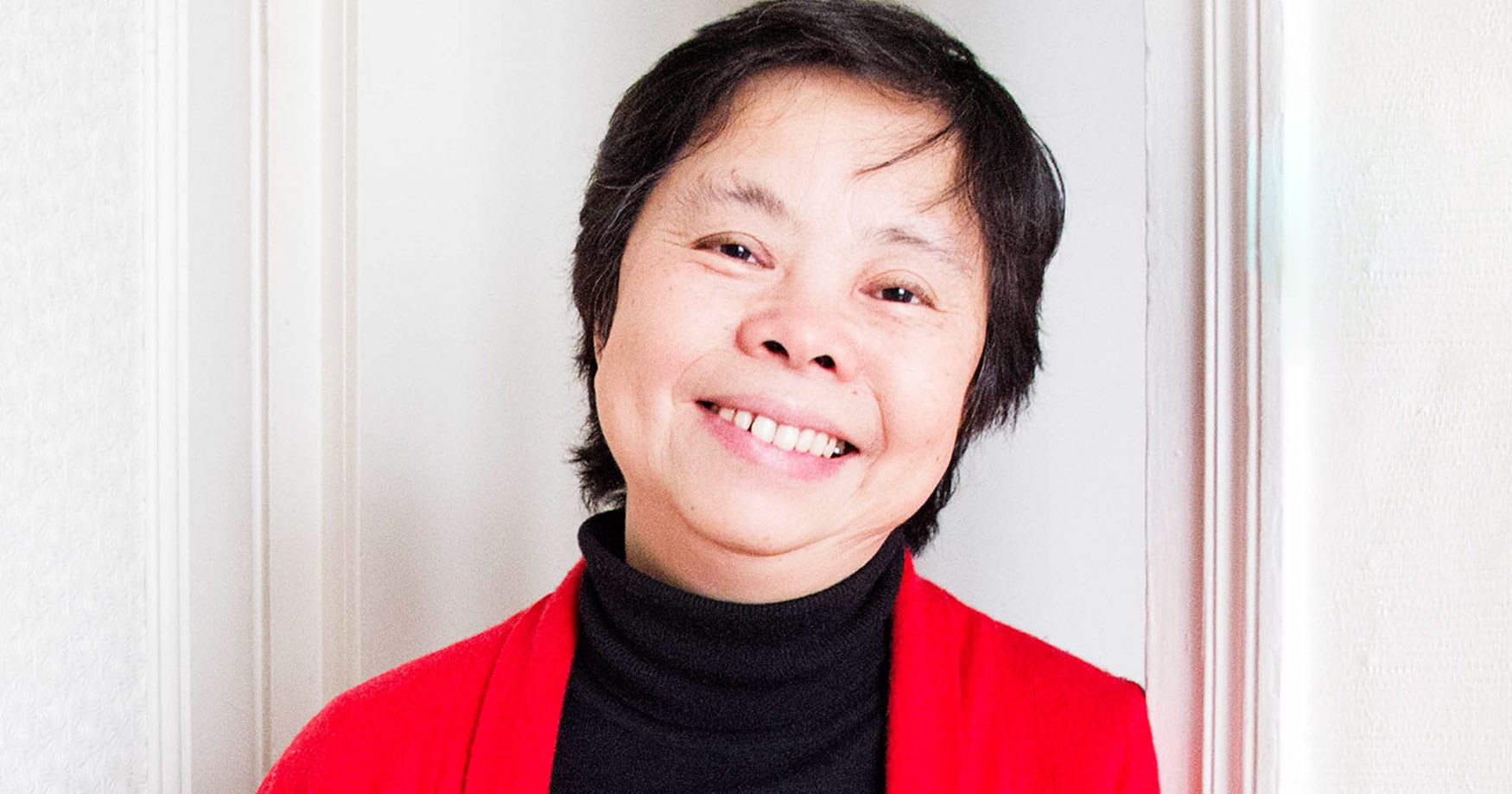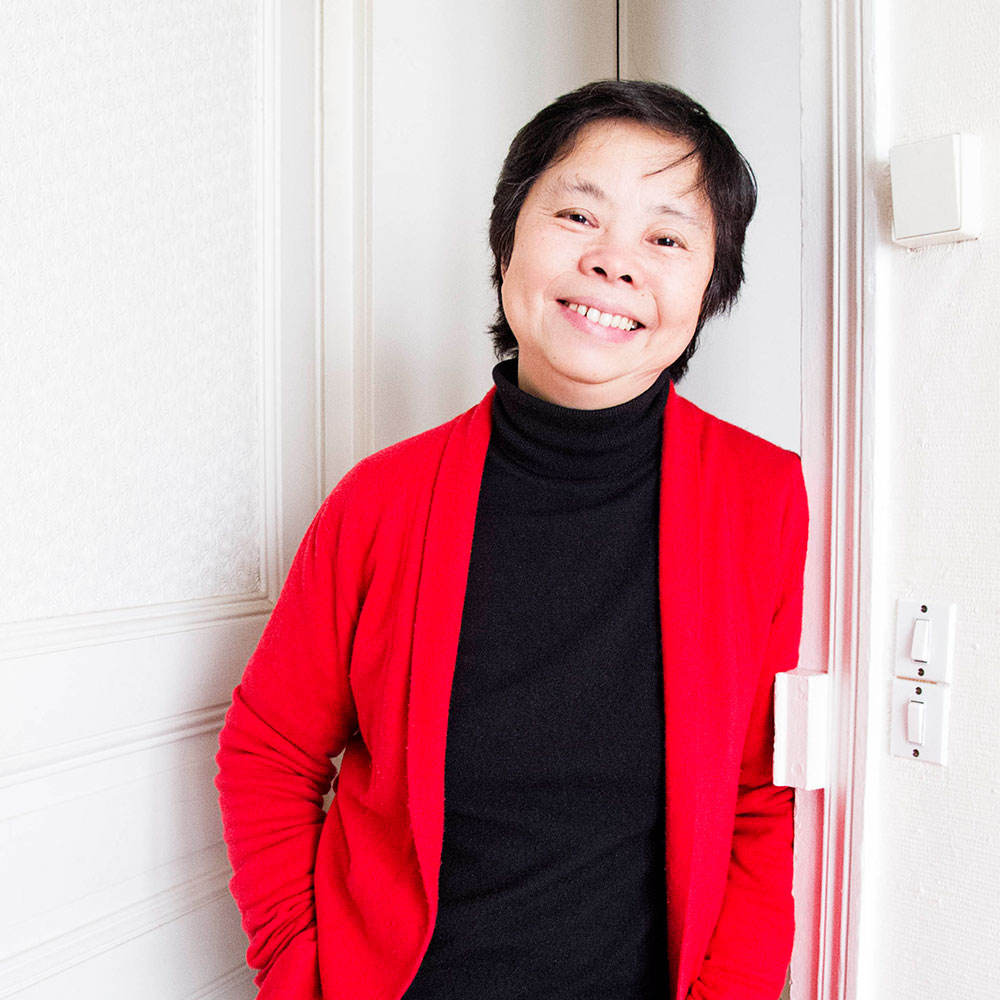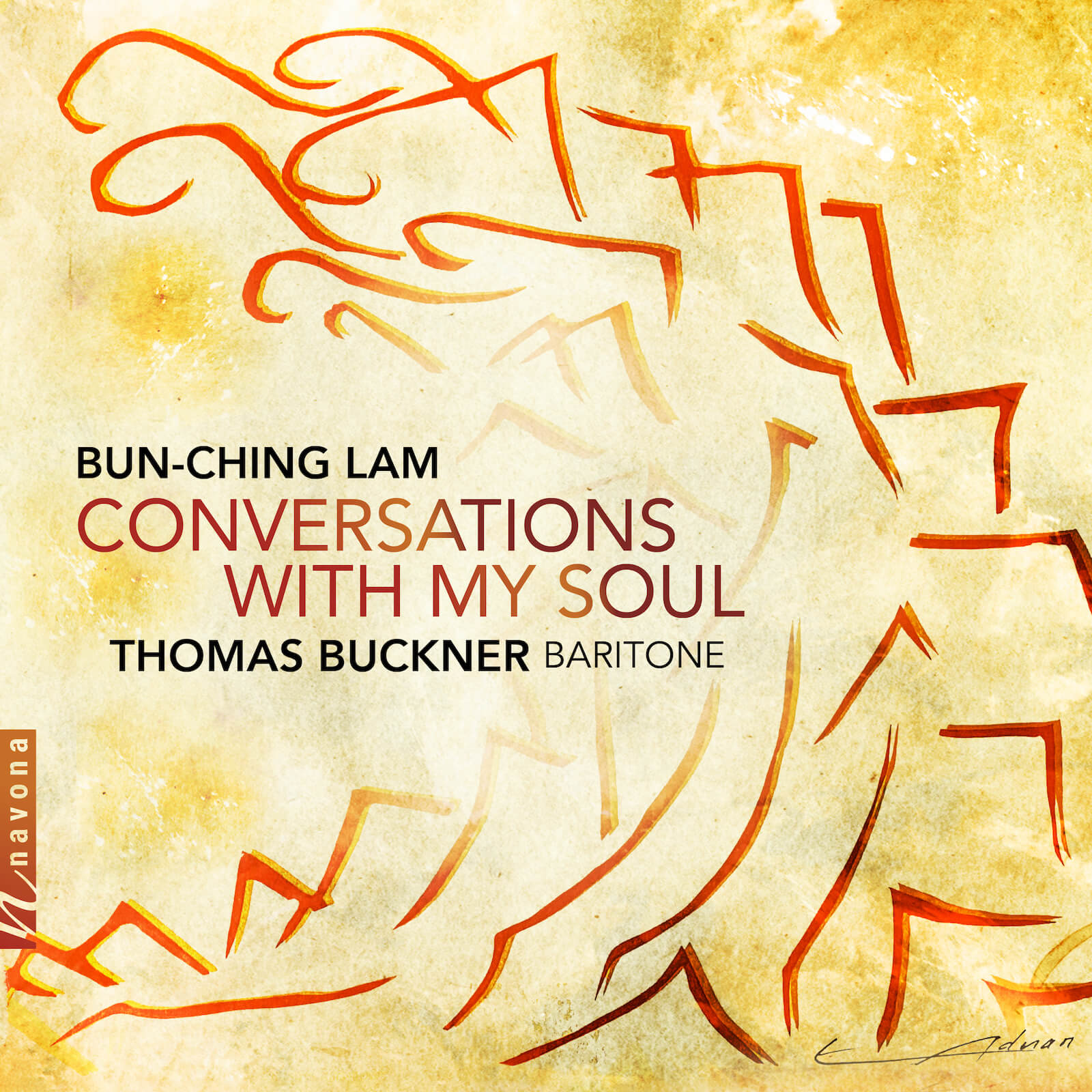
New from Navona is CONVERSATIONS WITH MY SOUL, a collection of new chamber works from acclaimed composer-pianist Bun-Ching Lam. The music sets in different languages the poetry of Shelley, Heine, Rimbaud, and Lasker-Shüller, as well as the poems of 9th Century Chinese mystic Han Shan and contemporary writer Etel Adnan. In a compositional voice The New York Times has called “alluringly exotic,” Lam incorporates baritone voice, piano, viola, flute, French horn, and harp to elucidate timeless works concerning life’s fundamental questions. With a thoroughly contemporary sensibility informed by tradition, Lam’s CONVERSATIONS WITH MY SOUL offers listeners a fitting soundtrack for their own existential ponderings.
Today, Bun-Ching is our featured artist in “The Inside Story,” a blog series exploring the inner workings and personalities of our composers and performers. Read on to discover how Bun-Ching learned a new instrument overnight when she found out a piano wouldn’t be available for her performance…
Who was your first favorite artist(s) growing up?
When I was growing up in Macao, there were very few concerts. One time a group of young musicians from Mainland China came and my father took me too see them. It was the first time I ever saw classical music performances. They were the best young musicians of China at the time, including Liu Shi Kuan and Gu Shing-Ying. They became my role models then. Another my favorite pianist was Fou Ts’ong who unfortunately passed away recently because of Covid.
When did you realize that you wanted to be an artist?
I gave my first solo piano recital when I was fifteen. Since then, I knew that I wanted to be a musician.
What was your most unusual performance, or the most embarrassing thing that happened to you during a performance?
When I was in high school, I was the piano accompanist for the choir as I could harmonize all songs by ear. One time we had a performance outdoors and no piano was available. So I learnt to play the accordion from a book called “How to Play the Accordion” and went on the stage the next day. But for some reason, the little accordion with 60 bass buttons I was playing was not available and I had to borrow another one just before starting the performance. It was a huge one with 120 bass buttons. I could hardly carry it, and when the performance started I couldn’t find the middle C button which was the reference for negotiating the bass! I don’t remember how it ended but the experience has stayed with me all my life.
If you could instantly have expertise performing one instrument, what instrument would that be?
I would love to be able to play the harp like Harpo Marx.
What does this album mean to you personally?
It means a lot to me, because it documents a very long friendship and collaboration with Thomas Buckner, and it also documents my musical journey over the time span of seventeen years.
Is there a specific feeling that you would like communicated to audiences in this work?
There is not a specific feeling, but many different feelings and emotions that I would like to communicate to listeners. Those are related to the poetry on the album, and each one is very specific. I hope to add another dimension to the poems, and the music is not only “setting” or “illustrations” of the words but it creates an environment to enhance the meanings of the poetry.
Explore Bun-Ching’s Latest Release
CONVERSATIONS WITH MY SOUL
CONVERSATIONS WITH MY SOUL is available now from Navona Records. Click here to visit the catalog page and explore this album.

Described as “alluringly exotic” (The New York Times), and “hauntingly attractive” (San Francisco Chronicle), the music of Bun-Ching Lam has been performed worldwide by such ensembles as the Macao Orchestra, American Composer’s Orchestra, New Jersey Symphony, The Vienna Radio Orchestra, Hong Kong Sinfonietta, and the Albany Symphony. Born in Macao, Lam served as the composer-in-residence of the Macao Orchestra from 2008-2016. She began her piano study in her native city, then further pursued her music education in Hong Kong and the United States.

